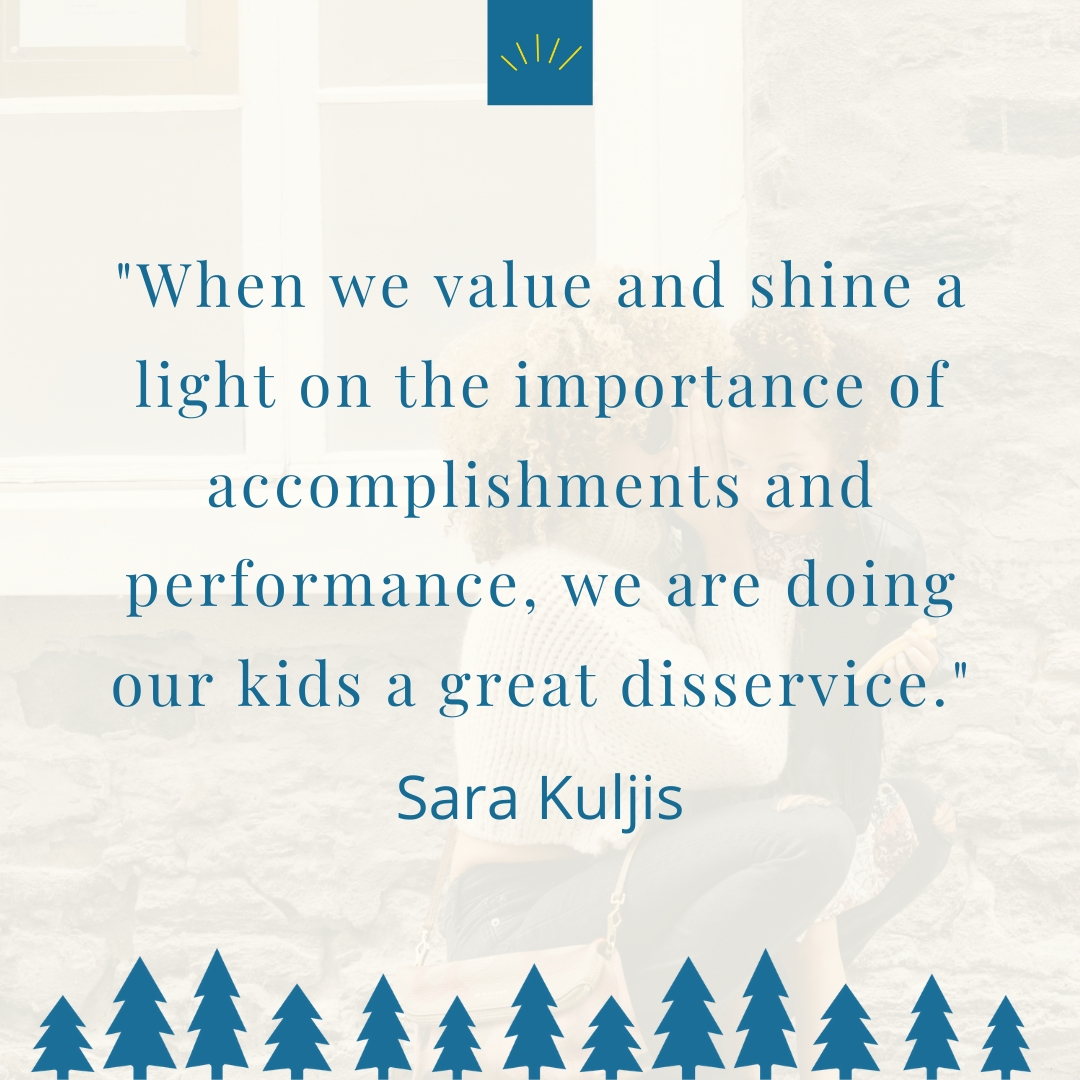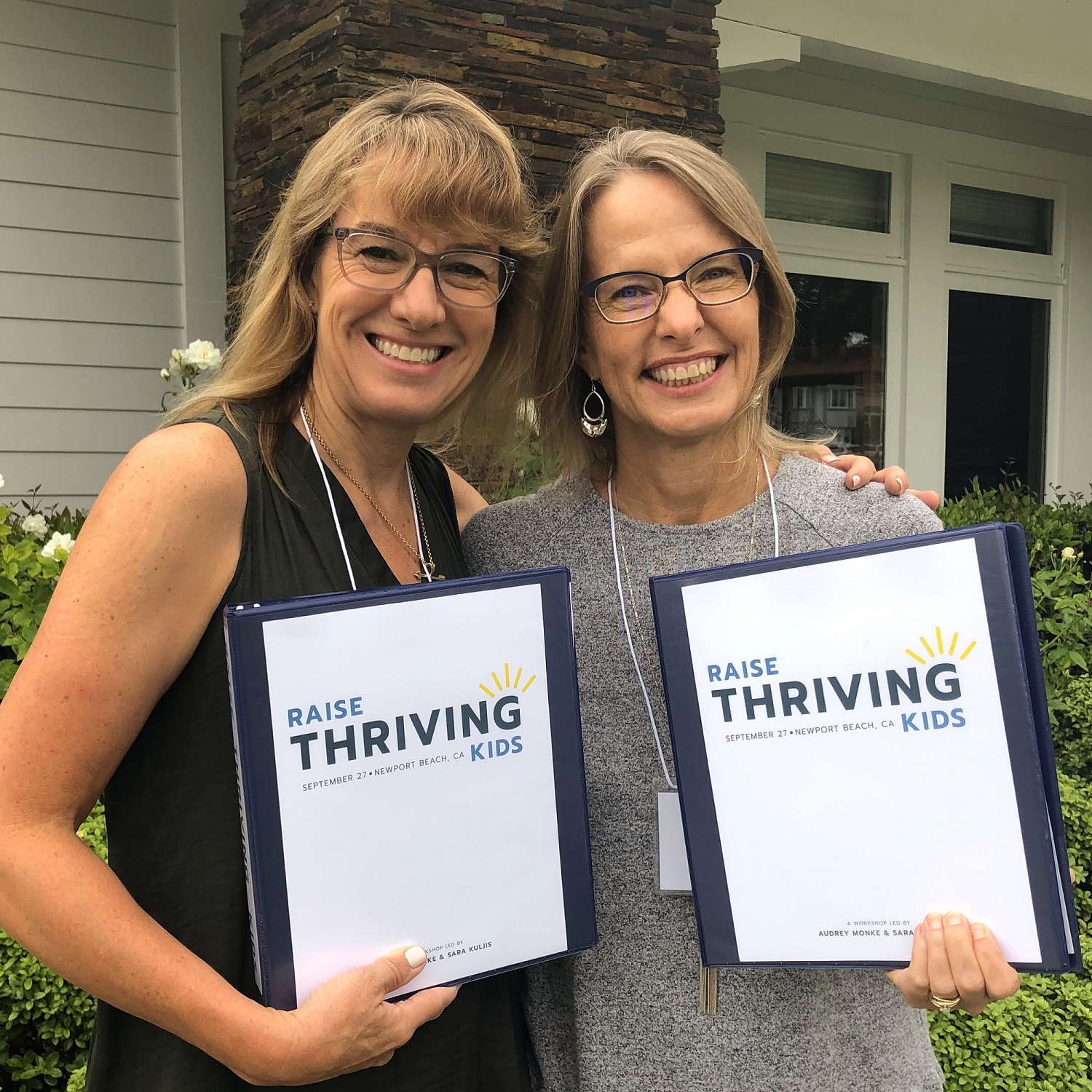Ep.115: Giving Kids Meaningful Compliments
Sunshine Parenting - A podcast by Audrey Monke

Categorie:
In this episode, Sara Kuljis is back to talk about giving kids meaningful compliments and focusing on our kids' strengths. We recently hosted our Raise Thriving Kids workshop in Newport Beach where we spent the day discussing positive parenting tools. Since then, we've received a lot of positive feedback, especially on the topic of Level 3 Affirmations.
Big Ideas
- Part of camp staff training involves teaching them to more regularly and more deeply affirm real character traits that matter in the campers. The children are able to go home knowing that they have this "gold" within them. They divided the affirmations, or compliments, into 3 levels.

- Level 1 affirmations are words that convey worth, value, and importance in one's possessions or one's physical appearance. Examples: "You have beautiful hair." "That's a really cool new skateboard."
- These are compliments on things (physical traits or material possessions) that a child doesn't have a lot of control over and it can create a sense of insecurity.
- Level 2 affirmations are words that convey worth, value, and importance lies in one's performance or accomplishments. Examples: "You fixed your hair so cute today" and "You were amazing at the skate park today."
- Level 3 affirmations are words that convey worth, value, and importance in one's efforts, character, in one's very being. Examples: "I appreciate the time you took to do your friend's hair. I admire that about you" or "I admire how hard you've been working to improve your skating skills. You've been out there every day. I appreciate your grit and determination."
- Level 3 traits are more likely to develop and grow in our children when they are acknowledged and praised.
Quotes
Audrey: "There's nothing wrong with level one affirmations and in fact, you feel good when someone comments. But there are levels up from that."
Sara: "Parents hover in level two a lot. At camp and at school, we often emphasize that skill they learned and it's awesome to affirm that in a child. But our kids are buried by the sense that they have to outperform and they have to accomplish way beyond what any reasonable expectation is."
Sara: "When affirmations get stuck at level two, where we value and shine a light on the importance--almost exclusively--of accomplishments and performance, we are doing our kids a great disservice."

Audrey: "This is probably how most of us were raised and often results in having really high expectations for ourselves that can get to a destructive level called 'perfectionism,' where we feel like no matter what we do, it's never enough."
Audrey: "We all have this fundamental need to be valued. We want people to notice us and value us and sometimes we think we are being valued for what we do, or what we accomplish."
Audrey: "It's not what we do or what we have that makes us a valuable, important person."
Sara: "Praise the process that your child went through to accomplish something. If I'm looking at the process, I'm looking at determination, perseverance, grit, inclusivity, kindness--all of the really deep character traits we're all hoping our kids have."
Audrey: "If our teachers and coaches focus on when they see someone demonstrating one of those traits that we want to build up in our kids, like kindness or generosity or patience, and point it out, that's going to grow it. It's really important for parents to do it. But when kids hear those kinds of affirmations from another adult, it's really powerful."
Audrey: "There's a lot of overlap here in mining for strengths and really taking the time to notice our kids and who they are and what makes them tick because kids right from the beginning show their stripes."
Sara: "For parents, it's loving the child you have, not wishing for the child you don't."

Audrey: "Bringing to the surface and naming some of those character traits for our kids is so helpful because they are the ones they are going to use to do great things. Whatever those great things are, they'll use those traits. They'll use their kindness, their energy, their gift for seeing what's going on or for organizing events or for including people. They're going use those skills everywhere in their lives, but not if they're not called out. We need to name them."
Audrey: "What better way to show our gratitude for another human being than by giving them a level three affirmation."

Related Posts/Podcasts
Ep. 63: Growing Gratitude with Sara Kuljis
Ep. 114: Precursors to Gratitude
A Grateful Family is a Happy Family: 5 Gratitude Practices
